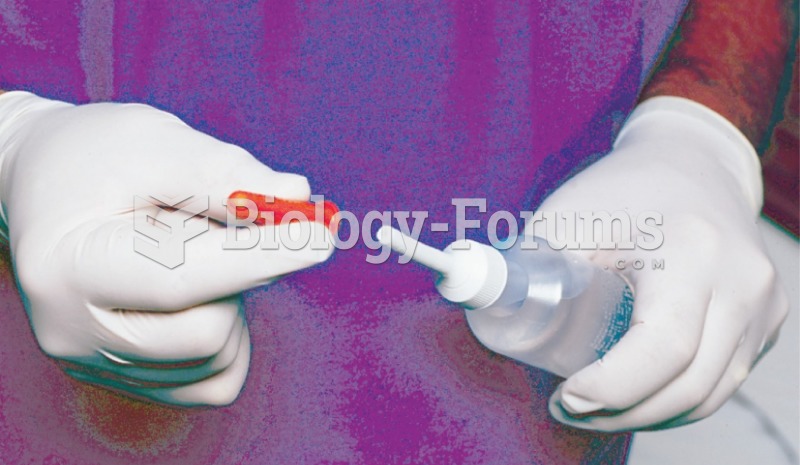|
|
|
Did you know?
Colchicine is a highly poisonous alkaloid originally extracted from a type of saffron plant that is used mainly to treat gout.
Did you know?
If you could remove all of your skin, it would weigh up to 5 pounds.
Did you know?
The immune system needs 9.5 hours of sleep in total darkness to recharge completely.
Did you know?
People about to have surgery must tell their health care providers about all supplements they take.
Did you know?
Cytomegalovirus affects nearly the same amount of newborns every year as Down syndrome.







